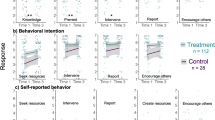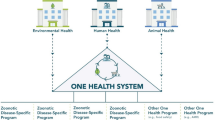Abstract
In an animal care and use program in a research setting, events that have a negative impact on animal well-being do not typically occur spontaneously and arbitrarily. It takes the convergence of multiple missteps, miscalculations and misinterpretations of conditions for a serious accident to take place. Two concepts drawn from wilderness survival training can be applied to any research animal care and use program to reduce adverse events. The first, derived from the accident matrix model, is the concept of 'problem vectors,' or conditions, behaviors and policies that increase the likelihood of an adverse event. Identifying problem vectors and diverting them before they intersect to create an adverse event can considerably improve animal well-being and reduce the number of protocol violations and reportable events. The second concept is that of doing the 'next right thing' when an adverse event does occur in an animal program. The next right thing is a response characterized by unified directed action toward fixing problems without engaging in behaviors that might worsen the situation. Adopting an institution-wide approach of diverting problem vectors and pursuing the next right thing can result in better prevention and management of adverse events.
This is a preview of subscription content, access via your institution
Access options
Subscribe to this journal
We are sorry, but there is no personal subscription option available for your country.
Buy this article
- Purchase on Springer Link
- Instant access to full article PDF
Prices may be subject to local taxes which are calculated during checkout
Similar content being viewed by others
References
Gonzales, L. The rules of adventure. National Geographic Adventure 5, 56–71 (2000).
Williamson, J. & Meyer, D. in Effective Leadership in Adventure Programming (eds. Priest, S. & Gass, M.A.) (Human Kinetics, Champaign, IL, 1978).
Williamson, J.E. (ed.) Accidents in North American Mountaineering 2011 (Mountaineers Books, Seattle, WA, 2011).
Gonzales, L. Everyday survival. National Geographic Adventure 82, 65–74 (2008).
Author information
Authors and Affiliations
Corresponding author
Ethics declarations
Competing interests
The author declares no competing financial interests.
Rights and permissions
About this article
Cite this article
Jefcoat, A. Applying the principles of disaster prevention to decrease adverse events in a research program. Lab Anim 41, 260–263 (2012). https://doi.org/10.1038/laban0912-260
Received:
Accepted:
Published:
Issue Date:
DOI: https://doi.org/10.1038/laban0912-260



